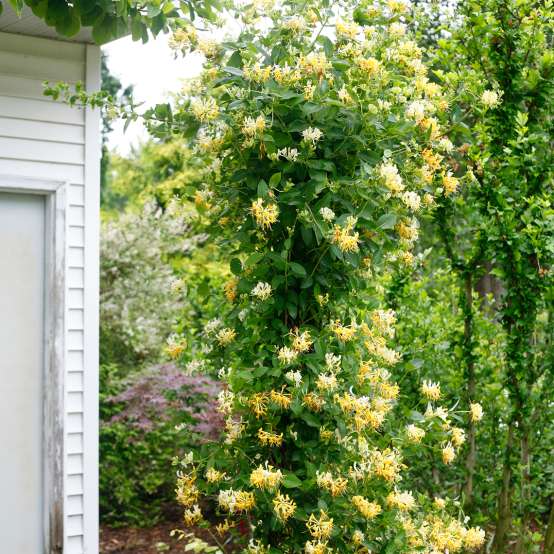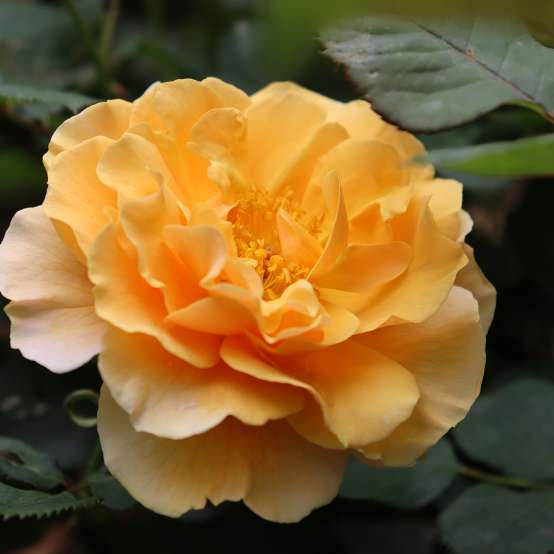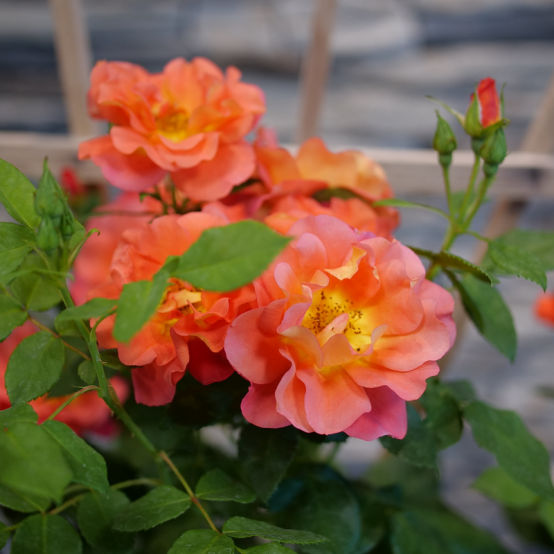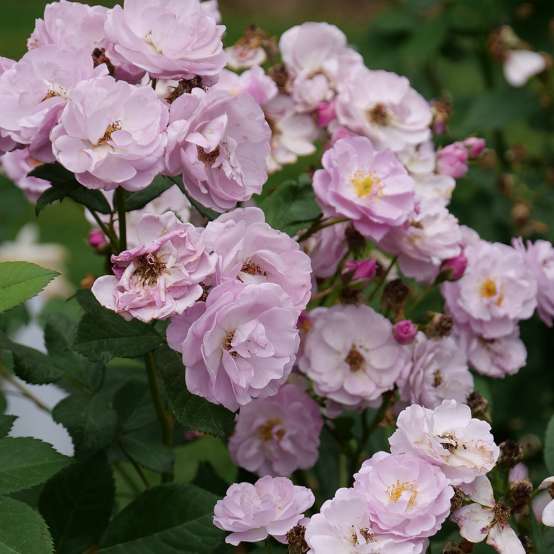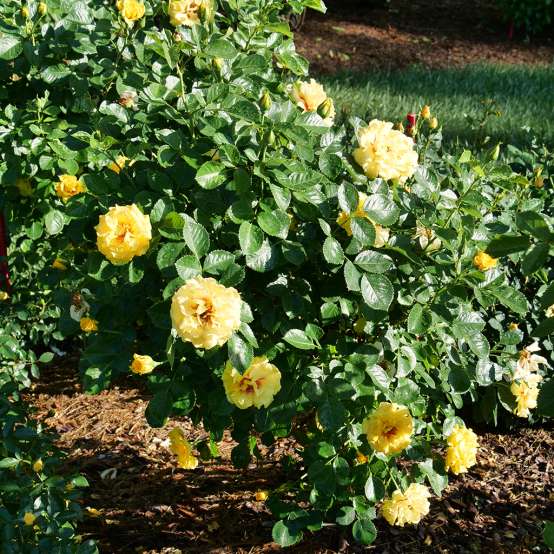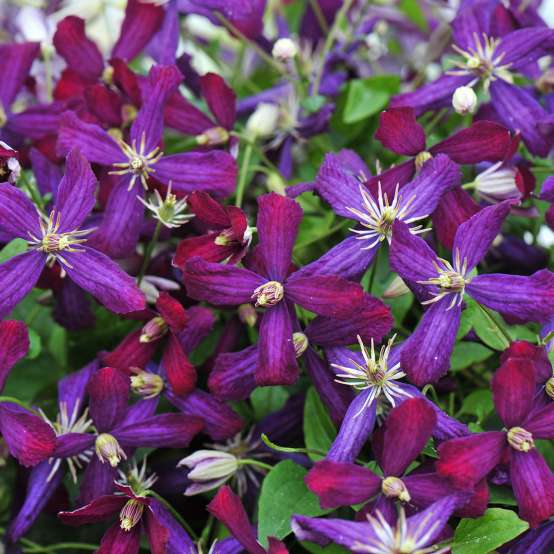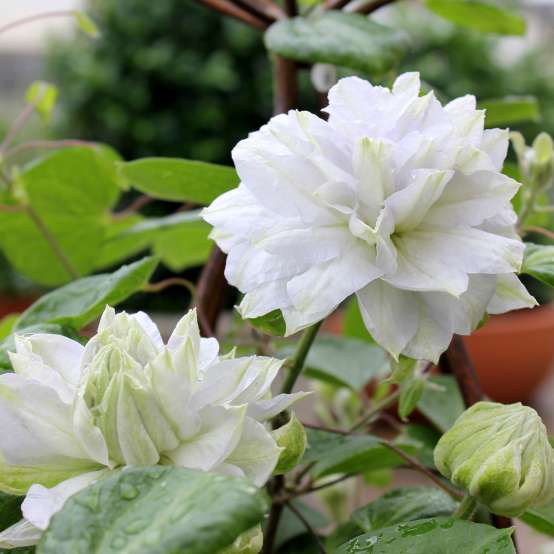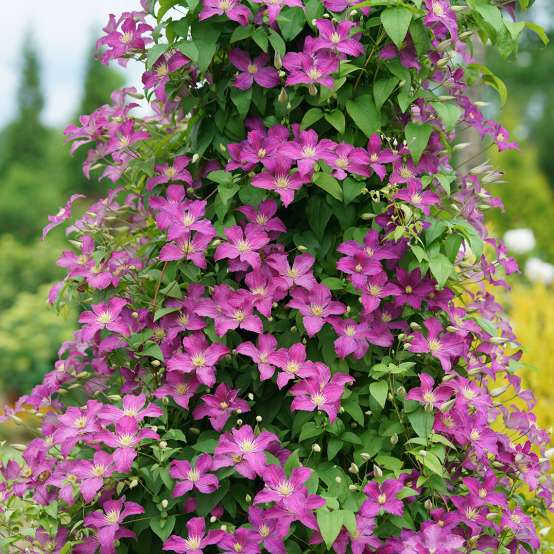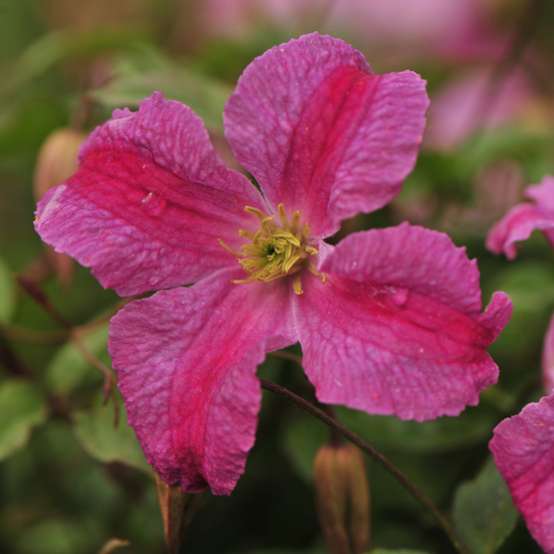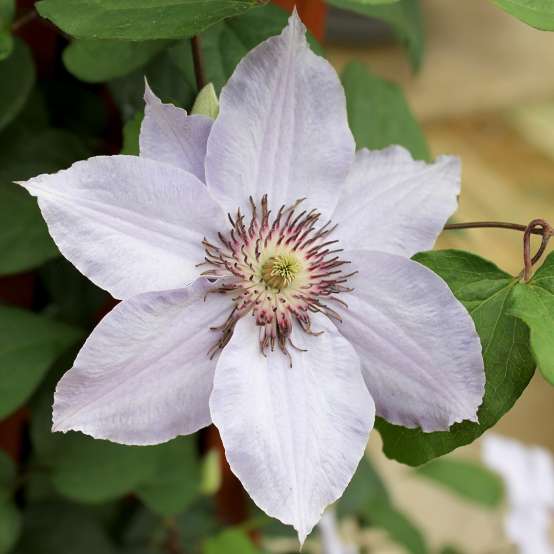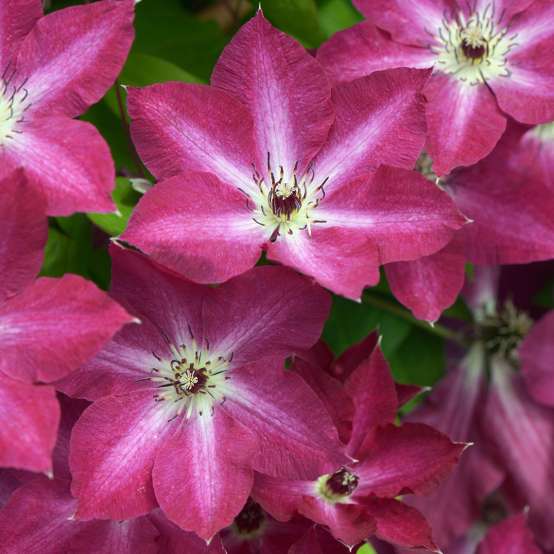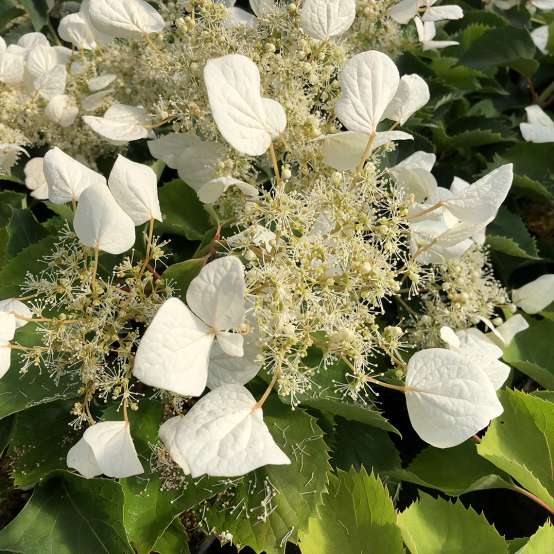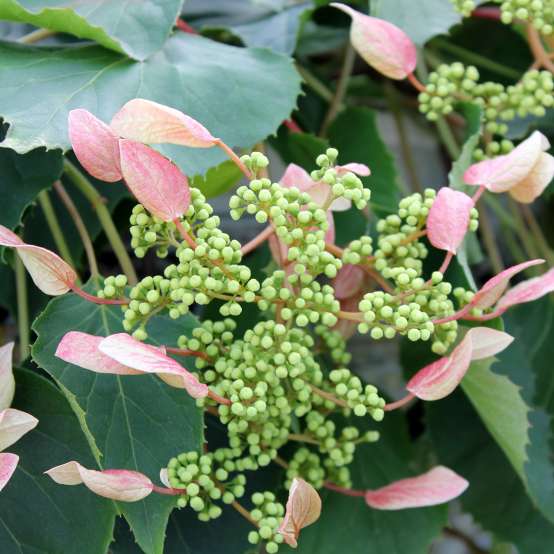Clicking the following controls will change the main image displayed above.

Meet the Breeder
Plant Select
KINTZLEY’S GHOST®
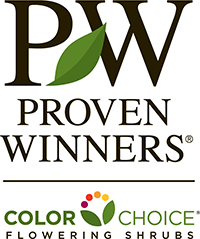
Grape honeysuckle
Lonicera reticulata
'P015S'
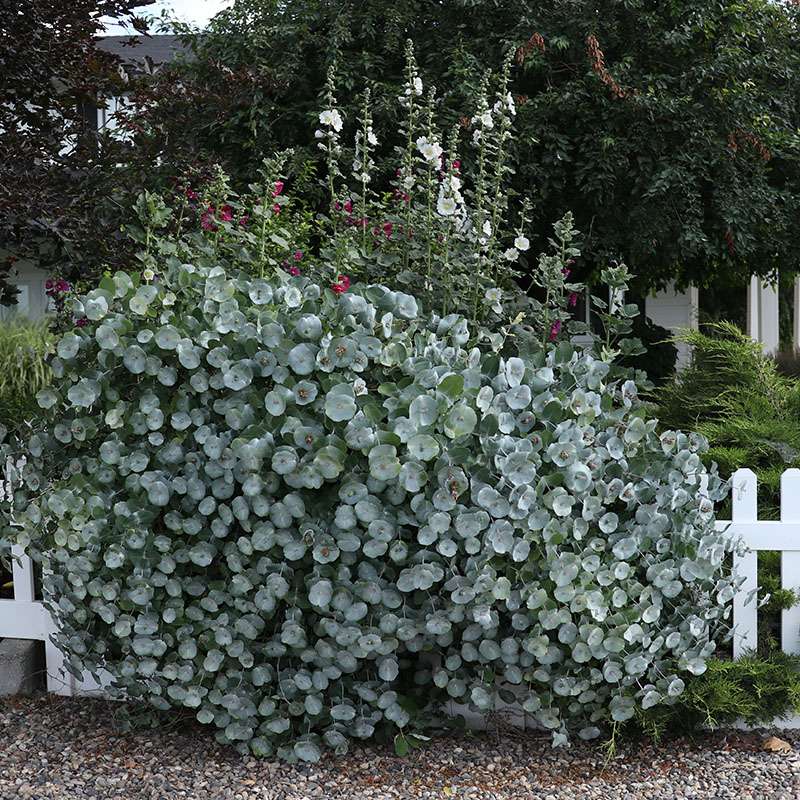
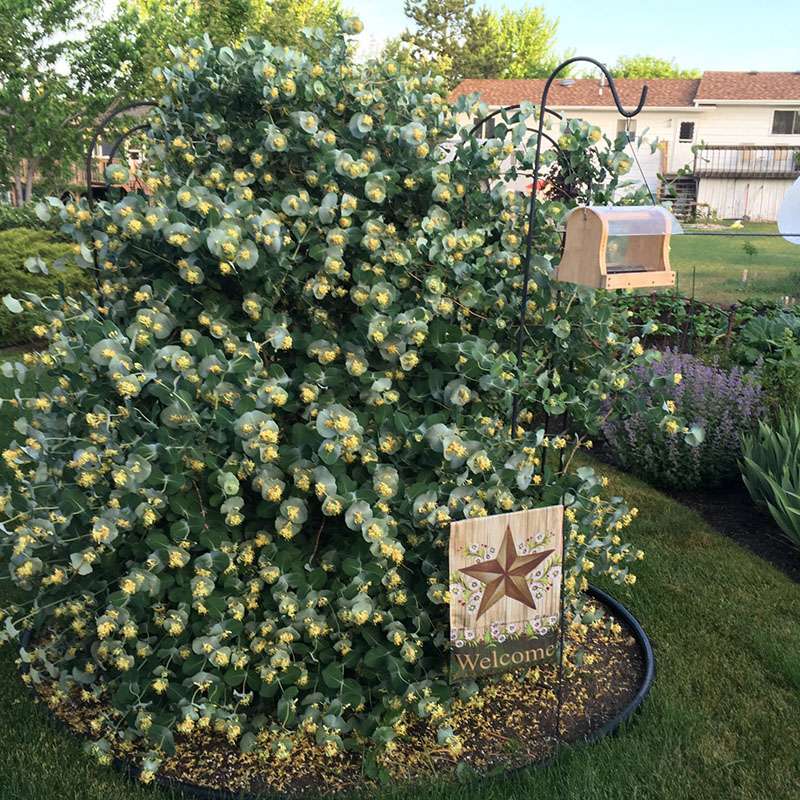
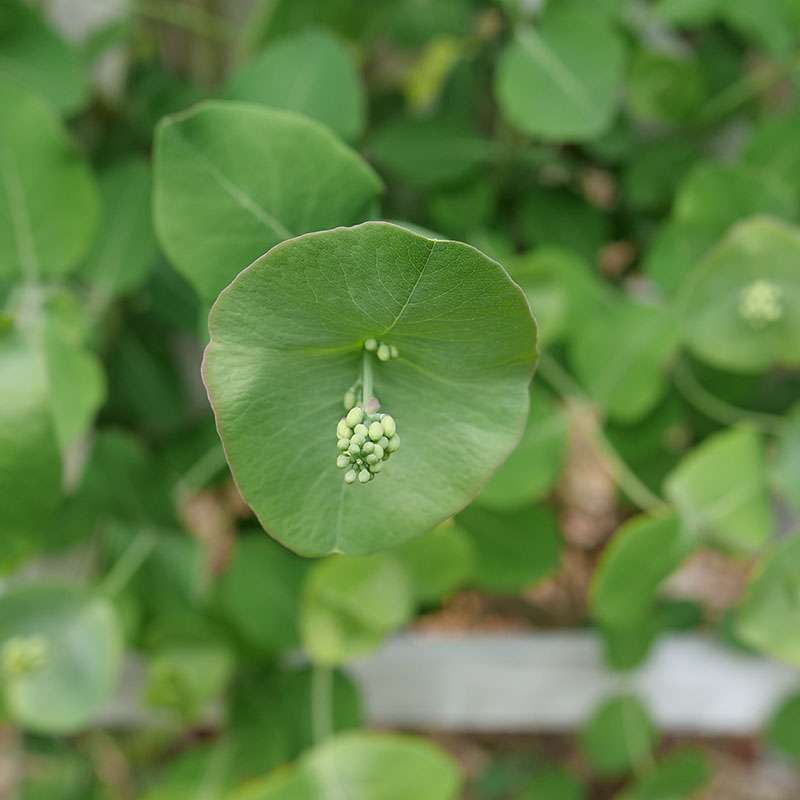
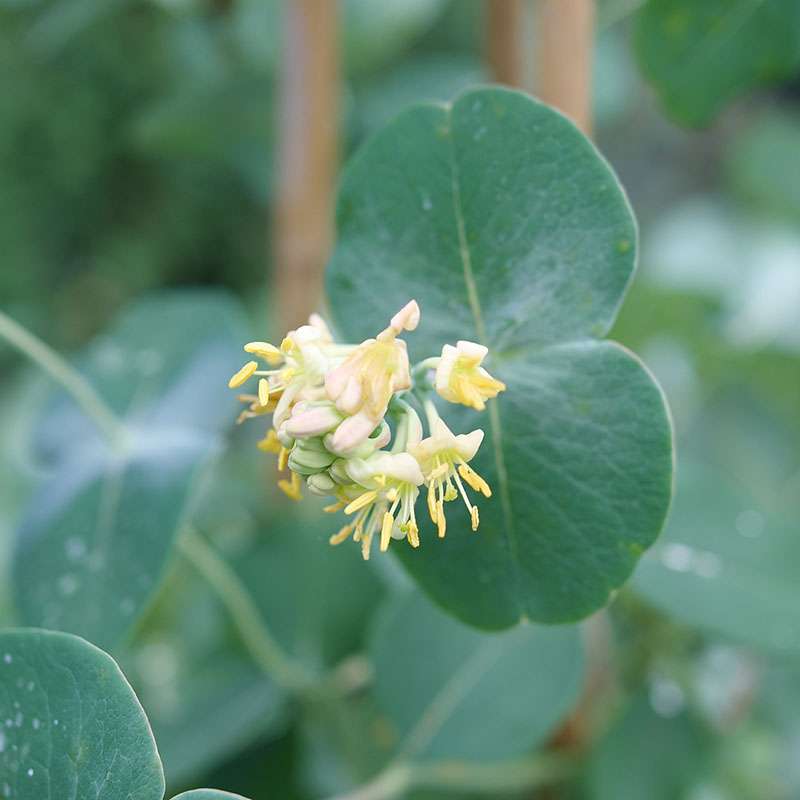
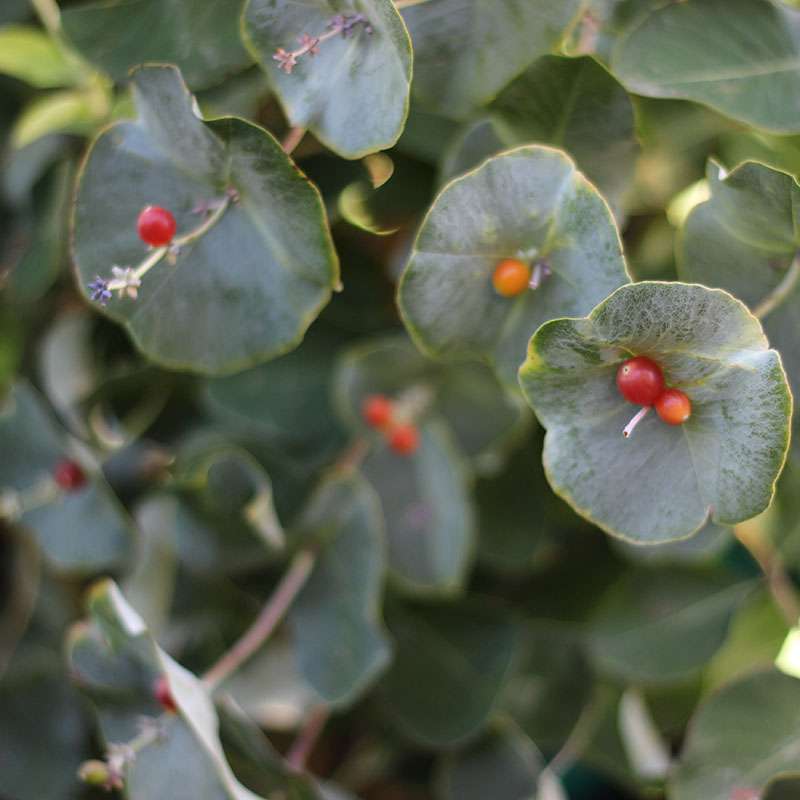
- Unusual foliage
- Non-invasive
- Vining habit
- Description
We know a good plant when we see one, and we are delighted to add Kintzley's Ghost honeysuckle (Lonicera reticulata) to the line of Proven Winners ColorChoice Shrubs. No, it's not new, but we know that there is a huge audience clamoring for this one-of-a-kind native honeysuckle and hope that this helps it get out there at scale.
If you haven't had the pleasure of getting to know this plant, let us introduce you: it was originally discovered by William "Ped" Kintzley, a professor at Iowa State University and came to us from Plant Select. In spring, its foliage emerges looking like any other honeysuckle, but as it gets going and develops flower buds, unique blue-white, saucer-shaped bracts form around them, and tubular yellow flowers emerge from the center. They have a light scent and do attract pollinators, including hummingbirds, but it's the bracts that make everyone ask, what is that?! They look like a eucalyptus, and remain effective on the plant until it defoliates in autumn. Flowers fade to reveal glistening red berries in each bract, but not to worry - this North American native species is not invasive and won't make a nuisance of itself.
- USDA Zone
- 4 - 8 (-30°F/-34°C)
- Exposure
- Full sun, Part sun
- Height
- 6-12'
- Width
- 5'
- Finish Time
- 1 season
- Type
- Deciduous
- Bloom Time
- Early summer
- Flower Color
- Yellow
- Foliage Color
- Green, Blue
- Liner Sizes
- 2 1/4", 4", Quick Turn
General Care
Soil
Adaptable to most any soil; avoid excessively wet areas.Pruning
Little required. Blooms on old wood but pruning after blooming will remove the most ornamental feature, the blue leaf bracts around the blooms.Uses
Covering trellises, obelisks, railings, fences, and posts.Growing Tips
Durable and easy to grow. Vines around structures without intervention.Features: Attracts pollinators, Clay soil, Cut flower, Deer resistant, Drought tolerant, Foliage interest, Fragrant, Native, Non-invasive, Vine
Filters: Botanical genus: Lonicera, Common name: Grape honeysuckle, Retail program: Proven Winners® ColorChoice®, USDA Zone 4, USDA Zone 5, USDA Zone 6, USDA Zone 7, USDA Zone 8, Exposure: Full sun, Exposure: Part sun, Bloom time: Summer, Yellow flowers, Green foliage, Blue foliage
Features: Attracts pollinators, Clay soil, Cut flower, Deer resistant, Drought tolerant, Foliage interest, Fragrant, Native, Non-invasive, Vine
Filters: Botanical genus: Lonicera, Common name: Grape honeysuckle, Retail program: Proven Winners® ColorChoice®, USDA Zone 4, USDA Zone 5, USDA Zone 6, USDA Zone 7, USDA Zone 8, Exposure: Full sun, Exposure: Part sun, Bloom time: Summer, Yellow flowers, Green foliage, Blue foliage

